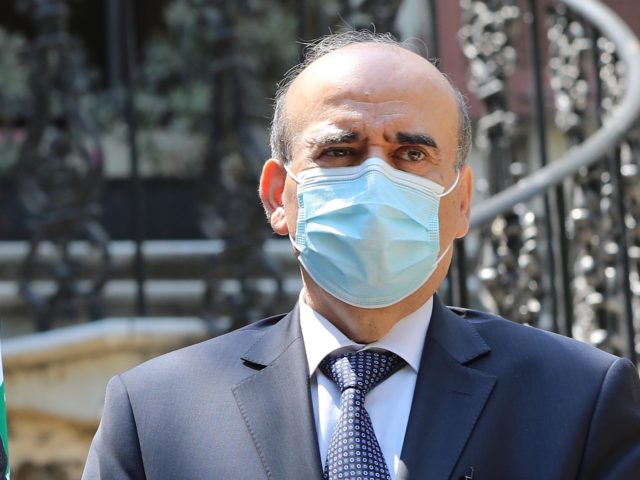Lebanese interim Foreign Minister Charbel Wehbe on Wednesday tendered his resignation after making remarks blaming Gulf states, Lebanon’s traditional allies, for facilitating the rise of the Islamic State (ISIS), the government announced.
“President [Michel] Aoun received Foreign Minister Charbel Wehbe who handed him a letter asking to relieve him of his duties,” the Lebanese Presidency account posted on Twitter.
Wehbe strained relations with Lebanon’s neighbors in a Monday TV interview in which he accused “countries of love, friendship and fraternity” of “planting ISIS in the plains of Nineveh and Anbar and Palmyra,” Emirati newspaper the National noted. His comments referred to areas in northern Iraq and eastern Syria where ISIS first rose to prominence.
Though Wehbe did not name any nation in particular, his statements prompted outrage from the United Arab Emirates, Saudi Arabia, Kuwait, and Bahrain. The UAE’s Foreign Ministry, in a subsequent statement, “strongly decried the derogatory and racist statements [made by Mr Wehbe] … against the Kingdom of Saudi Arabia and other GCC states.” The Ministry further asserted that Webhe’s remarks “fly in the face of all diplomatic norms and are inconsistent with the historical relations between Lebanon and all GCC states”.
The Lebanese presidential office relayed Wehbe’s remarks, attributing the resignation to the diplomatic row with the Gulf states:
In light of the recent developments and the circumstances that accompanied the interview … and since I’m keen to ensure that my remarks are not exploited to offend Lebanon and the Lebanese … I presented [to President Michel Aoun] a request to be relieved of my duties and responsibilities as Minister of Foreign Affairs.
“Caretaker” Deputy Prime Minister and Defence Minister Zeina Akar will reportedly succeed Wehbe as acting Foreign Minister, the National reported.
Wehbe’s resignation is the latest in a string of rapid cabinet changes for the Lebanese government, which has struggled to maintain basic levels of stability following a devastating explosion in the port of Beirut in August 2020. The explosion prompted the mass resignation of government officials, including then-Prime Minister Hassan Diab.
Only Aoun remained in office following the blast. His repeated attempts to form a new government have all ended in failure. Diab’s appointed successor, Mustapha Adib, resigned in September, after a mere month in office, citing his inability to build a working government. The resignation prompted Aoun to turn to Saad Hariri, a former prime minister who received his appointment in October 2020. He has failed to form a government, as well, and Diab remains in office as a caretaker prime minister.

COMMENTS
Please let us know if you're having issues with commenting.